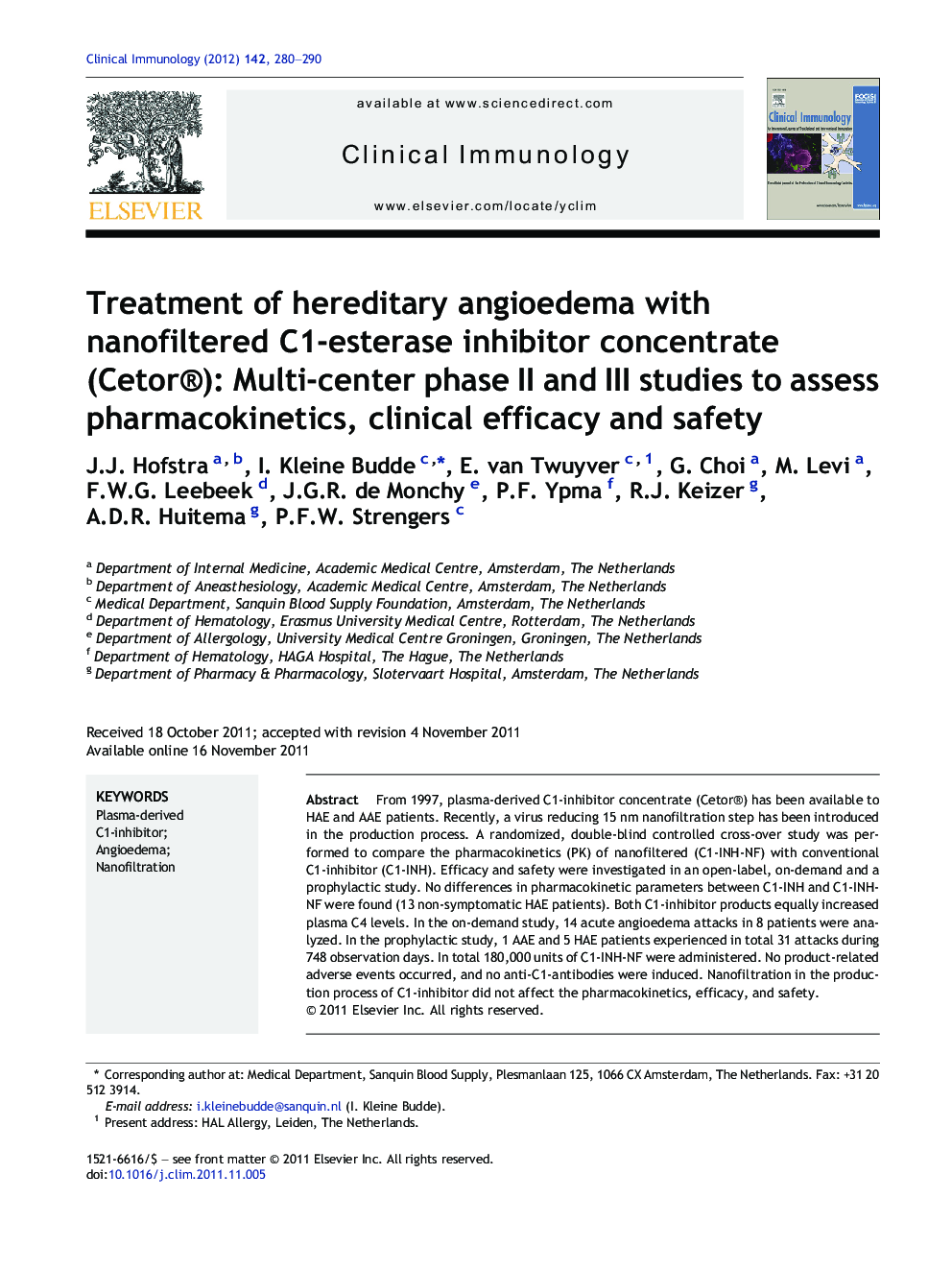| Article ID | Journal | Published Year | Pages | File Type |
|---|---|---|---|---|
| 3257168 | Clinical Immunology | 2012 | 11 Pages |
From 1997, plasma-derived C1-inhibitor concentrate (Cetor®) has been available to HAE and AAE patients. Recently, a virus reducing 15 nm nanofiltration step has been introduced in the production process. A randomized, double-blind controlled cross-over study was performed to compare the pharmacokinetics (PK) of nanofiltered (C1-INH-NF) with conventional C1-inhibitor (C1-INH). Efficacy and safety were investigated in an open-label, on-demand and a prophylactic study. No differences in pharmacokinetic parameters between C1-INH and C1-INH-NF were found (13 non-symptomatic HAE patients). Both C1-inhibitor products equally increased plasma C4 levels. In the on-demand study, 14 acute angioedema attacks in 8 patients were analyzed. In the prophylactic study, 1 AAE and 5 HAE patients experienced in total 31 attacks during 748 observation days. In total 180,000 units of C1-INH-NF were administered. No product-related adverse events occurred, and no anti-C1-antibodies were induced. Nanofiltration in the production process of C1-inhibitor did not affect the pharmacokinetics, efficacy, and safety.
► Pharmacokinetic properties of nanofiltered and conventional C1-INH are equivalent. ► Nanofiltration of C1-INH did not affect the efficacy in treatment of attacks. ► Nanofiltration of C1-INH did not affect prophylactic treatment. ► Nanofiltered C1-inhibitor (marketed as Cetor®) is effective and safe.
